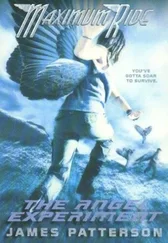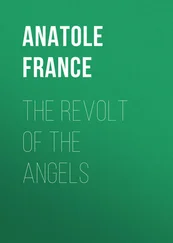Yukio Mishima - The Decay Of The Angel
Здесь есть возможность читать онлайн «Yukio Mishima - The Decay Of The Angel» весь текст электронной книги совершенно бесплатно (целиком полную версию без сокращений). В некоторых случаях можно слушать аудио, скачать через торрент в формате fb2 и присутствует краткое содержание. Год выпуска: 2010, Издательство: CCV Digital, Жанр: Старинная литература, на английском языке. Описание произведения, (предисловие) а так же отзывы посетителей доступны на портале библиотеки ЛибКат.
- Название:The Decay Of The Angel
- Автор:
- Издательство:CCV Digital
- Жанр:
- Год:2010
- ISBN:нет данных
- Рейтинг книги:5 / 5. Голосов: 1
-
Избранное:Добавить в избранное
- Отзывы:
-
Ваша оценка:
- 100
- 1
- 2
- 3
- 4
- 5
The Decay Of The Angel: краткое содержание, описание и аннотация
Предлагаем к чтению аннотацию, описание, краткое содержание или предисловие (зависит от того, что написал сам автор книги «The Decay Of The Angel»). Если вы не нашли необходимую информацию о книге — напишите в комментариях, мы постараемся отыскать её.
The Decay Of The Angel — читать онлайн бесплатно полную книгу (весь текст) целиком
Ниже представлен текст книги, разбитый по страницам. Система сохранения места последней прочитанной страницы, позволяет с удобством читать онлайн бесплатно книгу «The Decay Of The Angel», без необходимости каждый раз заново искать на чём Вы остановились. Поставьте закладку, и сможете в любой момент перейти на страницу, на которой закончили чтение.
Интервал:
Закладка:
Something soft brushed his right hand. A large snail was making its way down the tree.
He pulled his hand gently away. The flesh and the shell in succession, like the celluloid of the soap dish after the sticky suds, left revulsion. From just such a tactile impression the world could melt away, like a corpse in a tank of sulfuric acid.
Honda looked down again at the man and woman. There was almost a pleading in his eyes. Make me drunk, the earliest moment possible. Young people of the world, in ignorance and silence, let me get drunk to my heart’s content on the forms of your passion, which have no room for the old.
Sprawled out in the singing of insects, the woman raised herself and put her arms around the man’s neck. The man, who was wearing a black beret, had his hand deep under her skirt. Her fingertips moved energetically over the wrinkles of his shirt. She was twisted against his chest, like a spiral stairway. Panting, she raised her head and kissed him, as if she were gulping down medicine.
As Honda gazed, so intently that his eyes ached, he felt a surge of desire, like the first rays of the morning sun, from depths until then empty.
The man reached into his hip pocket. The thought that in the very middle of desire he feared being robbed brought a sudden chilling of Honda’s own desire. The next instant he was doubting his eyes.
The object the man took from his pocket was a spring knife. His forefinger touched it and there was a sound as of a rasping snake’s tongue. The blade gleamed in the dark. Honda could not be sure where the woman had been stabbed, but there was a scream. The man sprang up and looked around. The beret had slipped back. For the first time Honda saw the hair and face. The hair was a pure white, and the emaciated face was that of a sixty-year-old, wrinkled to every corner.
The man brushed past Honda, now in a state of shock, and ran off with a speed that belied his years.
“Let’s get out of here,” muttered the rat-like little man in Honda’s ear. “There’s going to be hell to pay.”
“I couldn’t run if I wanted to,” said Honda weakly.
“Too bad. They’ll suspect you if you don’t get away.” The man bit at his fingernail. “Maybe you should stay and be a witness.”
There was a whistle, a rush of footsteps, and a stir of people getting to their feet. The beam of a flashlight came from surprisingly near in the shrubbery. Policemen were standing around the woman, discussing the problem in loud voices.
“Where’d he get her?”
“In the thigh.”
“It’s not much of a cut.”
“What sort of man was he? Tell us what sort of man he was.”
The policeman who had been crouching beside the woman with his flashlight in her face stood up.
“An old man, she says. He won’t have gone very far.”
Trembling, Honda pressed his face against the tree. His eyes were closed. The bark was damp. It was as if a snail were crawling over his face.
He opened his eyes narrowly. He could feel the beam from the flashlight. Someone shoved at him, from so low that it had to be the little man. Honda stumbled from the shelter of the big tree. His face almost fell against one of the policemen. The policeman grabbed his wrist.
A reporter for a weekly magazine specializing in scandal happened to be at the police station. He was delighted at news of the stabbing in the Meiji Gardens.
The woman, her leg heavily bandaged, was asked to identify Honda. It took three hours for Honda’s innocence to be established.
“I’m absolutely sure it wasn’t this old gentleman,” said the woman. “I met the other one a couple of hours ago on a streetcar. He was an old man, but he dressed very young, and he was a good talker, a good mixer, you might say. I’d never have dreamed he could do such a thing. That’s right. I don’t know the first thing about him, his name or where he lives or what he does or anything.”
Before the woman confronted him, Honda was firmly tied up and his identity was established and he was forced to reveal the circumstances that had brought a person of his standing to the park at such an hour. It was a nightmare, that precisely the foolish story he had heard upward of twenty years ago from his old legal friend should now be his own experience. They all seemed to have the lucidity of a nightmare, quite divorced from reality; the shabby police station, the dirty walls of the interrogation room, the strangely bright light, the bald head of the detective.
He was allowed to go home at three in the morning. A maid got up and suspiciously opened the gate. He went to his room. He was troubled by bad dreams.
He came down with a cold the next day and was a week getting over it.
The morning he began to feel a little better, Tōru paid an unexpected visit. Smiling, he put a weekly magazine by Honda’s pillow.
It carried this headline: “Troubles of His Excellency Mr. Judge-Voyeur, Falsely Accused of Stabbing.”
Honda took up his glasses. There was an unpleasant throbbing in his chest. The article was astonishingly accurate, even carrying Honda’s real name. This was the climactic sentence: “The appearance of an eighty-year-old voyeur would seem to indicate that the control of Japan by the aged extends even to the world of deviates.”
The statement that his proclivities were not new but that for some twenty years he had had numbers of acquaintances among the voyeurs made Honda sure who the informant had been. The police themselves must have introduced the reporter to the little man. A suit for libel would only add to the embarrassment.
It was a vulgar incident that deserved to be laughed away; but Honda, who would have hoped that he no longer had prestige and honor to lose, saw in the loss of them that they were in fact still present.
It seemed certain that for rather a long time people would associate his name not with his spiritual and intellectual endowments but with the scandal. People were not quick to forget scandals. It was not moral indignation that made them remember. For encapsulating a person a scandal was the simplest and most efficient container.
The stubbornness of the cold told him that he was crumbling physically. To have been a suspect was an experience which, in the complete absence of intellectual dignity, seemed to bring a collapse of flesh and bones. Knowledge, learning, thought, could do nothing for it. What good would it have done to confront the detective with the fine details of the concepts he had acquired in India?
Henceforth Honda would take out his calling card:
“Shigekuni Honda”
“Attorney-at-Law”
People would insert a line in the cramped space between the other two:
Shigekuni Honda
Eighty-Year-Old Voyeur
Attorney-at-Law
And so Honda’s career would be compressed into a single line.
“Former judge, eighty-year-old voyeur.”
And so the invisible edifice which Honda’s awareness had built through his long life had collapsed in an instant, and a single line was inscribed on the foundation. It was as concise as a white-hot blade. And it was true.
After the September incident Tōru moved coolly to have things his way.
He took as his lawyer an old lawyer with whom Honda had feuded, and consulted with him upon the possibility of having Honda declared incompetent. An examination would be required to establish mental debility, but the lawyer seemed confident of the results.
And as a matter of fact the change in Honda was clear. After the incident he stopped going out and he seemed afraid of everything. It should be easy enough to establish the symptoms of senile delusions. Tōru had only to appear before a court of domestic relations and have Honda declared incompetent, and the lawyer would be appointed his guardian.
Читать дальшеИнтервал:
Закладка:
Похожие книги на «The Decay Of The Angel»
Представляем Вашему вниманию похожие книги на «The Decay Of The Angel» списком для выбора. Мы отобрали схожую по названию и смыслу литературу в надежде предоставить читателям больше вариантов отыскать новые, интересные, ещё непрочитанные произведения.
Обсуждение, отзывы о книге «The Decay Of The Angel» и просто собственные мнения читателей. Оставьте ваши комментарии, напишите, что Вы думаете о произведении, его смысле или главных героях. Укажите что конкретно понравилось, а что нет, и почему Вы так считаете.











